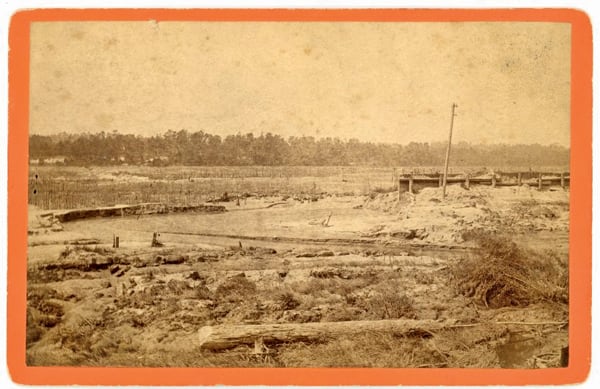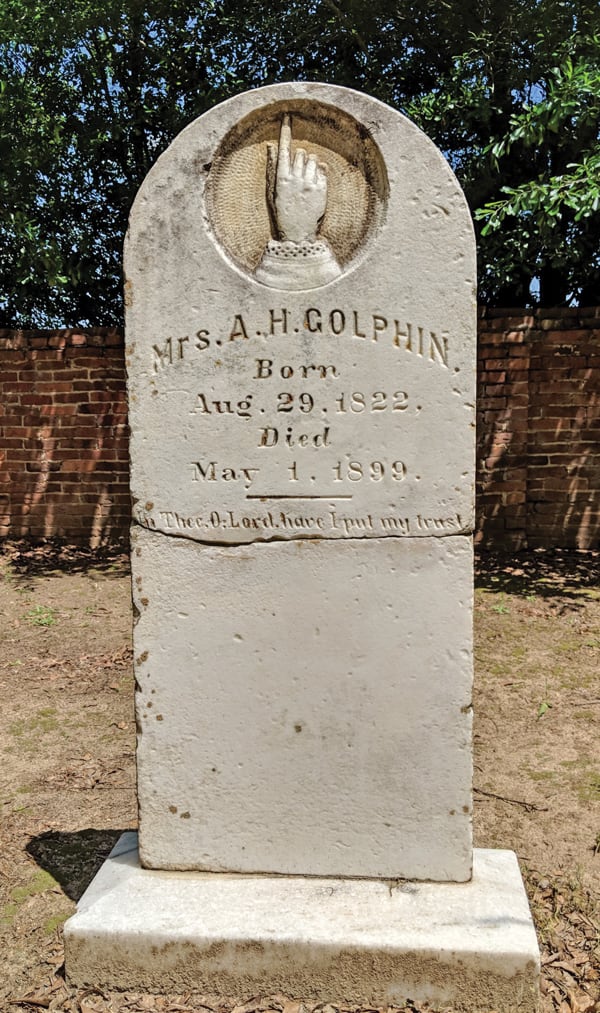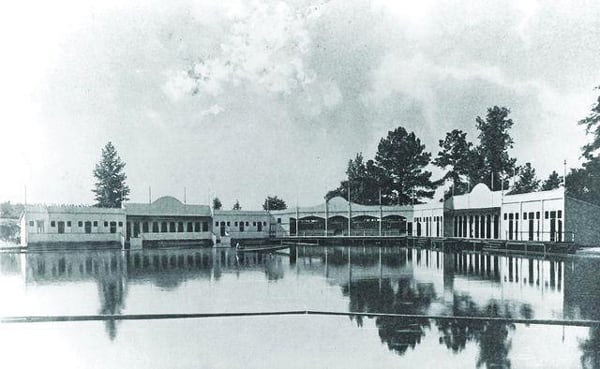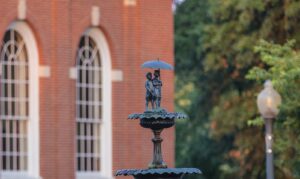Here at the Aiken County Historical Museum, we normally have a Founders Day celebration during March to celebrate the creation of our county. This year’s celebration is particularly special because Aiken County turns 150 years old in 2021. The land that Aiken County encompasses has thousands of years’ worth of stories about a multitude of lives that existed between heartbreak and hope. With that, let’s delve into a smattering of curious stories that took place in our fair county.
A rose by any other name would still be… Aiken County
After decades of petitioning the South Carolina State Legislature, a bill was finally passed in March of 1871 to create a new county with the city of Aiken at its core. The bill was put forward by Barnwell District Representative (later Senator) Charles D. Hayne, who was born a freeman of color in Charleston, South Carolina. According to the charter, this new county would consist of portions cut from Barnwell, Edgefield, Lexington, and Orangeburg counties.
Out of an abundance of originality, the new county was named Aiken. Oh, they tested the waters with potential names such as Woodbury and Randolph, but settled on the less creative option of Aiken. This resulted in 150 years of confusion as to whether one is referencing the city of Aiken or the county of Aiken. Oh well, moving on — now let’s explore our past.
Beech Island
One of the first European cultures to settle in the Beech Island area was Swiss. Starting in 1730, the royal government of South Carolina advertised large tracts of land to Europeans. One European town that really took to the pamphlets was the town of Appenzell in Switzerland, and in 1737, over 200 Appenzell citizens arrived in Beech Island, South Carolina. One of the lasting reminders of these settlers is their cemetery. You can explore the Zubly Cemetery when it is open to the public each year in April during the Beech Island Historical Tour.
North Augusta
In an effort to attract folks to their new city of North Augusta, the Jackson brothers built a natatorium in the late 1890s near the modern-day streets of Bluff Avenue and Crystal Lake Drive. They used the word natatorium (a building containing an indoor swimming pool) incorrectly — the North Augusta Natatorium was a fancy swimming pond fed by a natural spring. This particular natatorium was constructed in the Turkish style, with multiple spring boards along with a double trapeze over the water. In the middle of the natatorium structure was a grandstand for people-watching and musicians. Can you imagine swimming in clear, cool water in the middle of a Southern summer while listening to lovely orchestral music? It must have been a treat for those who could afford it and were allowed to enter its doors. Unfortunately, the natatorium succumbed to fire in 1904.
Midland Valley
As early as the 1850s, the Langley area of Horse Creek was dammed to create power for nearby mills. Starting in March of 1871, an investor named Langley gathered a group of men to invest in a new cotton mill. The company was named the Langley Manufacturing Company in his honor. 150 years later, the 285-acre Langley Pond, which technically qualifies as a lake, remains. Although Langley Pond Park is well-known for its disc golf course, water sports, and hiking trails, one of its most famous moments was the arrival of Olympians.
In 1996, Langley Pond Park became a prominent training ground for rowers ahead the 1996 Olympics, which were held in Atlanta, Georgia. Teams from around the world traveled to Langley to train, and they became celebrities in the CSRA. For years after the 1996 Olympics, Langley Pond continued to be a favored training ground for elite rowers.
Wagener-Salley
Many of the small towns that sprang up in Aiken County around the building of the railroad wanted to take the name “Wagener” in honor of local mercantile owner and strong railroad supporter George Wagener. The current town of Wagener won the honor, after having also been known as Pinder Town and Gunter’s Cross Roads. The Gunters were a prominent family in the area, and Gunters settled much of the town. Pinder is another word for a peanut, and legend has it that Wagener was called Pinder Town because the peanuts that grew there were so tasty!
Follow us at AikenCounty150.org and on social media for more fascinating facts about our community. Take time this anniversary year to explore Aiken County’s history and find out what makes you curious!

The North Augusta Natatorium, which burned in 1904.

The Zubly Cemetery. The oldest marked grave in the cemetery belongs to David Zubly, Sr. who was buried in 1790.
Photo credit: Lauren Virgo.

During the earthquake of 1886, the Langley Dam breached and drained the pond.
Photo donated by Linda Sabick. ACHM Collection.
























